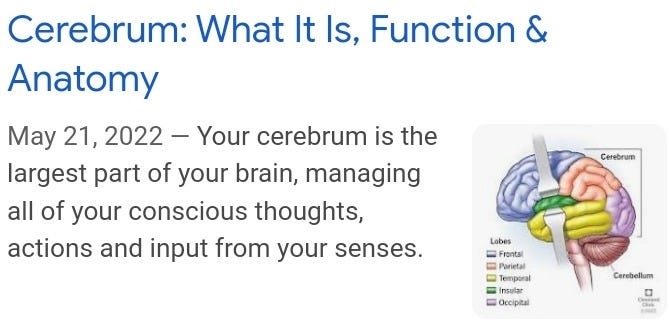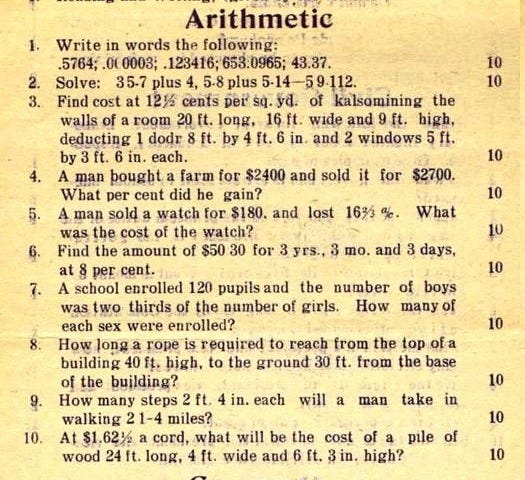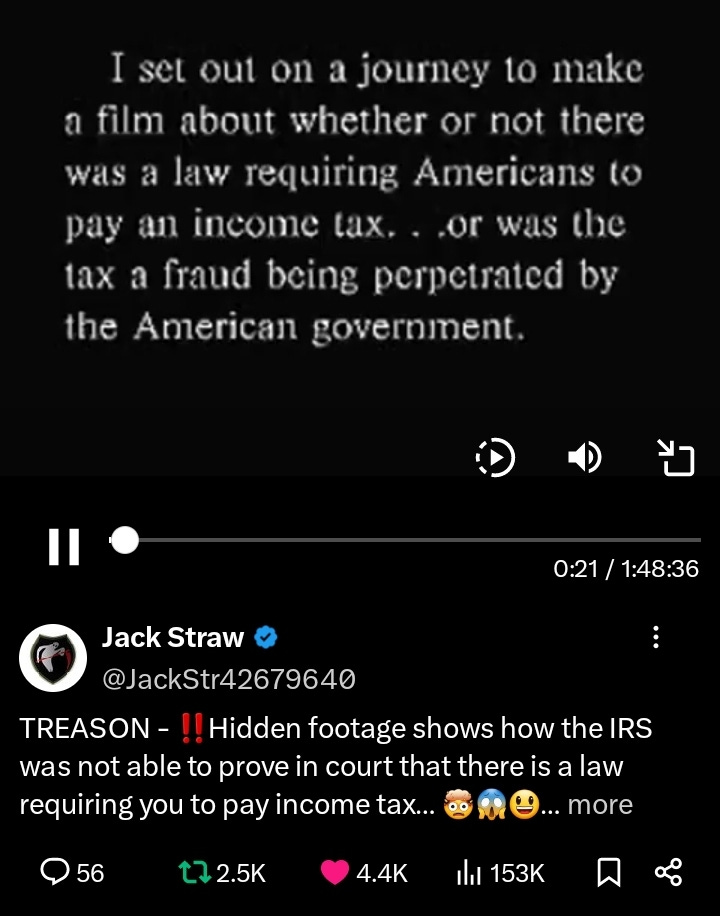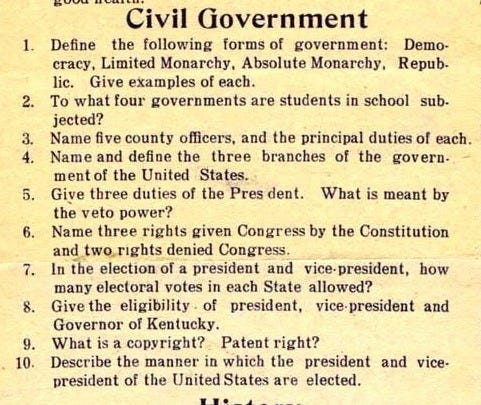Are you smarter than a 1912 USA 8th grader? & videos about the history of the US income tax, and the Federal Reserve banking system.
8th grade was graduation for many people in 1912. Not all students went on to high school. Real world skills were learned and farm work or apprenticeships took up teen's time in the early 1900's.
The Eighth Grade Examination for Bullitt County Schools, November, 1912. The exam has questions for different subjects, including Spelling, Reading, Arithmetic, Grammer, Geography, Physiology, Civil Government and History. Note that just choosing “C” will not work as a test taking strategy. A teacher would have had to hand grade all the essay style answers. The original source says it was a one-room school at the time. (bullittcountyhistory.com) via (x.com/HannahFrankman)
I am not smarter than a 1912 eighth grader or the Brave AI at Geography and it also helped me with Arithmetic and Physiology regarding what exactly the liver produces as an endocrine gland and in other functions. I stumbled out of the gate with that question as I hadn’t really thought of the liver as and ‘endocrine organ’ but Brave AI found support for that label. I did get a Civil Government question correct.
Woke world would all stumble on the Grammar question about Personal Pronouns and how to ‘decline’ I. So did I at the “Decline I” part, stumbled that is. My eventual answer: I: me, my, mine - are my personal pronouns and all of 1912 student’s too. “We: us, our, ours,” Wikipedia helped with this question. “Decline I” as a search term brought up mostly sloping ‘declines’ as definitions, but “Declension” was included - change the tense of a word or inflection Wikipedia called it. The declension of a word includes versions of it that are used for, Current, future, or past tense, and singular and possessive variations. Some words don’t change much, others do. Sing, sang, sung. Walk, walked, walks.
I learned from a childhood friend that a dictionary is useless to people who can’t spell well - you have to know the first few letters correctly to even begin looking in the right place. Me: <jaw on the floor> - Wow, that would be hard! Now-a-days we just check the search engine for spelling or have an autocorrect type spell checker in the word processing software - but you still have to be close to correct for the real word to be recognizable.
Two thirds of the arithmetic word problem’s class were boys, so it is possible that more girls stayed home at age 14 than completing Primary School graduation. At the end of this lengthy post is a discussion of what it was like for students in 1912. High school attendance didn’t become standard until later in the mid 1900s - picture the TV show ‘Happy Days’ - it probably was happy. Typical teens were mixing with other teens for the first time instead of working on a farm or in a family business or apprenticeship. Richer youth of 1912 might have been spending their teens in a segregated boarding school for girls or military type academy for boys.
I include in this later section information about setting a good role model as a parent for young children - help them learn real skills and help with household chores from a very young age when they are eager to help, and then later they will have the routine and the skills to be well-functioning helpers and later be adults who know how to take care of themselves

The questions are geared at memorizing details about stuff we easily can look up now, but learning something saves time later…you didn't need to look it up. And knowledge can build on what was memorized. The facts we learned by rote or practice, things we previously learned, can make it easier to learn more information or to reach a new discovery on our own.
“Why is this information useful to me?” is critically important in Adult Education - adults don't want to waste their time, but it also is helpful here in a student exam. Why should this smart 8th grader care about Physiology? Answer: Because the knowledge can help them to stay healthier.

Spelling:
Exaggerate, incentive, conscious, pennyweight, chandelier, patient, potential, creature, participate, authentic, bequeath, diminish, genuine, vinegar, incident, monotony, hyphen, antecedent, autumn, hideous, relieve, conceive, control, symptom, rhinoceros, adjective, partial, musician, architect, exhaust, diagram, endeavor, scissors, associate, saucepan, benefit, masculine, synopsis, circulate, eccentric.

Physiology
How does the liver compare in size with other glands in the human body? Where is it located? What does it secrete? 🤔
The liver is not typically considered an endocrine gland in modern times. It much, much, larger than the organs that are considered endocrine glands now. It is located on the right side of the body, just under the edge of the rib cage and to the side of the stomach which is a bit more on the left of the body. It secretes a variety of digestive enzymes for fats via the gallbladder (**addition- the liver makes the bile, the gallbladder stores and releases bile as needed for digestion) and is involved in digestion of carbohydrate too.
*Brave AI says the liver does have endocrine producing functions so it qualifies as an endocrine gland. Research with different wording - the liver has endocrine and exocrine functions but it also does a lot more than other endocrine glands. (Brave AI)
*My error on ‘digestive enzyme for carbohydrate’ — the liver is involved in glycogen metabolism post digestion but the liver doesn't make digestive enzymes for carbohydrates,
Brave AI summary, Based on the provided search results, the liver does not produce any digestive enzymes for carbohydrate breakdown. Digestive enzymes, such as amylase, maltase, and lactase, are produced by the salivary glands, pancreas, and small intestine, respectively, to break down carbohydrates into simple sugars. However, the liver does play a crucial role in carbohydrate metabolism, particularly in glycogen… (does+the+liver+produce+any+enzymes+for+carbohydrate).
The liver detoxes chemicals and activates vitamin A to Retinoids and makes Vitamin A Binding protein for transport throughout the body.
**What the liver excreted, is a long list, and I wasn't sure of my answer, so I double checked - significantly not mentioned by me are cholesterol and albumin -
(Brave AI summary/ Based on the provided search results, the liver produces:
Cholesterol: The liver produces cholesterol, which helps carry fats through the body.
Special proteins: The liver produces proteins to help carry fats through the body.
Albumin: The liver produces albumin, a major protein that regulates blood volume and distribution of fluids in the body.
Bile: The liver produces bile, a fluid that that helps digest fats and carry away waste products from the liver. Bile is essential for the digestion and absorption of fats in the small intestine.
Clotting factors: The liver plays a role in hematology with clotting factors, which are essential for blood coagulation.
Proteins: The liver synthesizes proteins, including clotting factors, and regulates amino acid levels in the bloodstream.
Hormone metabolism: The liver plays a role in sex hormone metabolism and produces carrier proteins that are important in reproduction and development.
Vitamin storage and metabolism: The liver stores and/or metabolizes fat-soluble vitamins, such as vitamin A and vitamin D3.
Xenobiotic metabolism: The liver transforms xenobiotics (foreign substances) into more hydrophilic forms through phase I and phase II reactions, primarily using cytochrome P450 (CYP450) enzymes.
These substances play crucial roles in maintaining overall health, regulating blood chemistry, and facilitating digestion and absorption of nutrients.(what+does+the+liver+produce)
Name the organs of circulation. … The heart, aorta and other arteries, veins, and capillaries; the spleen. I am not sure if the lymphatic vessels and lymph nodes count here but they are part of fluid circulation in the body.
Describe the heart. … The heart is roughly a 7 sided organ made of many layers of muscle organized in a criss cross type of pattern that causes a vortex to be created during contractions as blood travels through the four chambers of the heart. Blood cells are sorted during the vortex action into fresher cells that are sent to the brain with a full oxygen load and old cells sent to the spleen to be removed if too old.
Compare arteries and veins as to function. Where is the blood carried to be purified? …. Arteries leave the heart carrying oxygenated, redder, blood cells, and it travels back through veins which have internal valves tgat only allow the blood to move forward, it can't reverse back into the capillary beds. Blood is taken to the spleen to be cleaned, but also visits the kidneys to be cleaned.
Where is the chief nervous center of the body? … the brain
Define Cerebrum. Cerebellum. …The cerebrum is the front or larger part of the brain with the right and left hemispheres and it is involved in thinking and feeling or hearing or seeing. The cerebellum is at the back of the brain, near the brain stem, and it is involved in controlling fine movement or action.
What are the functions, or uses, of the spinal column? … Nerve signals from the brain travel down the spinal column to control voluntary movements and involuntary ones. Nerve signals travel back up to the brain to inform us if we tripped or touched something hot.
Why should we study Physiology? … We should study physiology in order to better understand how our body works, what helps support its health, and what makes it less healthy or dysfunctional.
Give at least five rules to be observed in maintaining good health.
Drink clean water daily and avoid an excess of diuretic alcohol or coffee or black tea.
Get sunshine everyday and fresh outdoor air,
….with a vigorous walk or other outdoor activity like gardening with digging and wheelbarrowing loads around. Exercise daily including weight bearing work and aerobic type work. Walking, hiking, lawnmowing, sweeping and housework done energetically can help maintain or improve health and fitness.
Eat some fiber rich and zinc rich foods like pumpkin seeds, to support a healthy gut microbiome.
Eat adequate protein foods daily: meats, fish, dairy, eggs, pre-soaked nuts, beans, and seeds, Nutritional yeast flakes, mushrooms and algae also provide a little protein and other trace nutrients for a diet that is low in animal product protein foods.
My thoughts — That was pretty hard for 8th grade biology class but it was labeled Physiology specifically rather than being a broader Biology of Life type focus. And my answer for the heart question would probably be marked wrong at a medical school still today. The vortex info is cutting edge research.

Cerebrum: (my.clevelandclinic.org/cerebrum)
1912 Grammar is going to trip up the modern generation - #3. What is a Personal Pronoun? Decline I. After a Wikipedia visit — I, me, my, and mine, are my Personal Pronouns.

2 weeks ago - In linguistics, declension (verb: to decline) is the changing of the form of a word, generally to express its syntactic function in the sentence, by way of some inflection. Declensions may apply to nouns, pronouns, adjectives, adverbs, and determiners to indicate…
The questions are geared at learning skills - how to write grammatically, and how to use a map or globe. But it is also about memorizing details that we easily can look up with the internet now. Life is a lot easier for the curious student now. But really learning something saves time later…you didn't need to look it up. And it is easier to build on what was memorized.
“Why is this information useful to me?”
helps keep adults attending an Adult Education course. Adults want to gain a skill that will benefit their live. It also is helpful to have questions right in the student exam which remind them why they should bother studying and how they might continue to USE the knowledge that they are learning.
Why should this smart 8th grader care about Arithmetic?
Answer: Because the knowledge can help them to calculate cost of materials needed for a building project (#3) or other supplies, like a cord of firewood, (#10); or to measure rope needed to lower something to the ground (#8); or to calculate the long-term cost of an interest rate or the profit made on a bank savings deposit (#6); or the loss or gain made on the purchase price of something they sold later on (#4 and #5). *#4, Farm purchase price in 1912 - $2400.

History #5. Describe the battle of Quebec. My guess answer… It was cold. History always seemed boring to me - why memorize dates and places? Hopefully, so we don’t repeat previous mistakes.
Brave AI came up with two battles, one affecting Canadian history and one affecting American history so here is that second battle - it probably was cold out in Quebec City, Canada, on Dec. 31, 1775. I would probably get zero points from a 1912 8th grade teacher for that (snarky) 3-word description though. Being too cold has caused battles and wars to be lost over the ensuing decades though.
The Battle of Quebec (1775): This was a battle fought during the American Revolutionary War between British forces led by General Guy Carleton and American Continental Army forces led by General Richard Montgomery. The battle took place on December 31, 1775, in Quebec City. Montgomery’s forces, despite initial successes, were ultimately repelled by Carleton’s defenses, and the Americans suffered heavy casualties. The failure to capture Quebec City marked a significant setback for the Continental Army’s Canadian campaign. (Brave AI)

1913 history class: Where is the law that requires to pay Income Tax on our wages? And just who is the Federal Reserve Bank?
…a documentary regarding the creation of the Federal Reserve in the US, and the creation of income tax on wages . . . shows us that US citizens have been conned and any other income tax paying employees who work here. The constitution only allows tax on business investment type profit - not a tax on the wage worker’s wages. But people do get harshly penalized and even jailed if they don’t pay Income Tax.
Taxes on hourly wages is more like an indentured servitude - we are wage slaves if someone else can skim part of the effort from our daily work. The Forefathers did not create wage slavery in 1776.
Click through for the full Aaron Russo documentary, ~ 2 hrs.
“TREASON - Hidden footage shows how the IRS was not able to prove in court that there is a law requiring you to pay income tax… LauraAbolichannel [on Telegram]” (x.com/JackStr42679640)
Apparently, there is no constitutional law saying hourly wage work is to be taxed. It is considered a Voluntary Tax, unlike taxes on property ownership or on investment or corporate income. Only Capital Gains type of income by businesses was taxable during the first century of the USA. In 1913 the Federal Reserve was passed under dodgy circumstances - (a bunch of people against it happened to die on the Titanic). The 16th Amendment is said to have allowed for personal wage income tax, but not enough states ever officially ratified it, and it doesn’t actually create a new personal tax in the language used. *Errors here are my own, I would need to relisten and take some notes - I may have mixed some stuff up.
Your instructor:
Aaron Russo, (1943-2007) was a Hollywood producer of some big hits “Trading Places (1983), Wise Guys (1986), and The Rose (1979).” and directed “Rude Awakening (1989)” called a comedy by the Brave AI, and the income tax documentary. *Aaron Russo died in 2007 of bladder cancer (~ 64 y/o). Coincidentally, the income tax documentary was released in 2006 “America: Freedom to Fascism is a 2006 film by Aaron Russo.” (Wikipedia) The US has so many coincidences - it baffles belief.
“I set out on a journey to make a film about whether or not there was a law requiring Americans to pay an income tax . . . or was the tax a fraud being perpetrated by the American government.” - Aaron Russo, America: Freedom to Fascism.

I’m curious now, the movie Rude Awakening, does look funny. I missed seeing that too. It sounds like a fictionalized What-if Documentary about the changes that occurred in the 1980s that led to the emergence of “Yuppies” - Young Urban Professionals. Preppie business types who cared about image and earnings more than gardening or having children right away. (Who were the Yuppies of the 80s? medium.com/@rhondafergus) They were possibly former Hippies of the 60’s drug and music culture, who became rich working people who owned condos and Cappuccino makers (~those became really trendy early 1990s).
Rude Awakening: “In the 1960s, two hippies go off into the jungle to evade the FBI. When they come back to New York in the 1980s, their fellow hippie friends have become rich yuppies.” (imdb.com)
»»»> More on money and what fiat currency is vs the older Gold Standard money, “If you don’t understand Bitcoin, then watch this.” - Hodlius B Maximus, (x.com/MAKS_Diogenes).

Civil Government - #2. To what four governments are students in school subjected? My answer - Federal, State, County and City or Township.

Brave AI agrees with me: Government Jurisdictions in Education
Based on the provided information, students in school are subjected to the following four governments:
Federal Government: Although the Federal government plays a limited role in education, it sets national standards and provides funding for certain programs, such as special education and bilingual education.
State Government: State governments have significant control over education, including setting curriculum standards, administering state tests, and distributing funding to local schools. Each state has its own education department and constitution, which outlines the role of education in the state’s governance.
County Government: County governments provide various services, including law enforcement, health services, and infrastructure maintenance, which may indirectly impact schools. However, their direct role in education is typically limited to providing funding for specific programs or services, such as transportation or facilities maintenance.
City or Township Government: Municipal governments, such as cities or townships, have a more direct impact on schools, particularly in areas like zoning, land use, and local ordinances. They may also provide funding for specific school programs or services, such as after-school activities or community outreach initiatives.
It’s essential to note that the specific roles and responsibilities of each government level may vary depending on the state or locality. However, in general, students in school are subject to the authority and oversight of these four governments. (Brave AI search results & summary)
“Don't believe everything that you read on the Internet”…. or in a newspaper or peer-reviewed journal article…. Fact Check for yourself.
Don’t believe your own memory either, double check the facts - but don’t always take the standard answer or search engine answer as being correct. Summaries of summaries of summaries, turns into the old-fashioned Telephone Game, at the other end of a circle of people — What was heard, is no longer at all like what the first person whispered. What bloggers endlessly blogged about, may be incorrect, but may affect what the AI search engine results turn up. It might create a mishmash that is totally mixed up.

Geography, #1. Define longitude and latitude.
Answer - the vertical and horizontal lines on the globe showing the coordinates of a location somewhere on Earth. 1912 8th grade questions via (x.com/HannahFrankman)

I’m picking the easiest question - #8. Name in the order of their size three largest States in the United States. Answer in 1912: I’m not sure. Alaska wasn’t a state then. Brave AI says Texas, California, and Montana is the answer because Alaska wasn’t a state then. #9….Wasatch? I don’t know. Brave AI - from the Idaho/Utah border to central Utah. #10. Through what waters would a vessel pass in going from England through the Suez Canal to Manila? My answer: the Atlantic to the Mediterranean, through the Suez Canal to the Red Sea, then the Indian Ocean? … then to the South China Sea to Manila Bay. (Brave AI) Clearly, I am not smarter than the Brave AI in Geography.

Geographic coordinate system
system to specify locations on Earth
This is the latest accepted revision, reviewed on 29 October 2024. A geographic coordinate system (GCS) is a spherical or geodetic coordinate system for measuring and communicating positions directly on Earth as latitude and longitude.[1] … (Wikipedia)

1912 eighth graders covered a lot of material. Should we provide less material to make it easier to pass?
Changing educational standards to improve the grades of lesser skilled students in our current times, doesn’t improve their skills and it may slow down the potential of students that could have been learning or practicing more advanced material. Parents that don’t home school could still be encouraging their children to learn something extra at home, now that so many resources are readily available online.
Home and a family business were the traditional places for a lot of skill building. Before factories and office buildings the family farm or carpentry shop, or bakery, or lodge, was also the location the adults did their daily work. They were busy, but they might be home instead of away for 10 or more hours. Child labor laws became more of an issue when factories were introduced, or mass production of matches and buttons, mining also had child labor.
Children were expected to help do useful work. Education was a luxury for people who could afford to send their children to a school with fees. Public education becoming readily available and then mandated - truancy laws - also led to farm children getting to school, but the long break during summer is because farm children are needed on the farm.
»»> Children will learn and will do what they see us do,
…not what we tell them to learn and do. <««
Role modeling excellence in personal self-care, and home care - and having them help with chores and food preparation during their early childhood, also helps children to learn the skills and to learn them so routinely, that the daily tasks aren’t viewed as a weird demand or punishment by the parent - it is just part of life, which adults do, and children are expected to learn. Young children want to help. That is the best time to teach daily skills. Buy preschoolers and gradeschoolers smaller size brooms or a pitcher to pour milk or water from. Have a sponge ready so they also learn to wipe up spills. (Age-appropriate chores for children and teens/Brave AI summary)
The Ultimate List of Age-Appropriate Chores, (childdevelopmentinfo.com)
*That list mentions “Resew on a button” as a reasonable chore for teens - BUT, if you hadn’t taught younger children how to thread a needle and to sew, then the older teen may not pick up the skill very well. Some skills are easier to learn gradually over time. Start dinkier children on the basics of hand stitching if you want teens to be able to sew on a button. Plastic needle and yarn or threading oversized beads on a shoelace are ‘games’ to start very young children with.
35 Yarn Crafts for Kids (happyhooligans.ca) includes a variety of craft projects including simple stitching crafts and a sewing card to make for your youngsters. Sewing Card: Picture a simple coloring book page glued on cardboard and then the outline has holes punched in it. The youngster can ‘stitch’ through the holes of the outline with yarn threaded on an oversized plastic needle - coloring in the outline of the picture.
Teach children skills when they think everything is amazing fun, and then later the teen will have marketable skills that may also be useful around the house for stitching up minor rips before they became huge holes.
A parenting hack I learned watching a Youtuber ‘minimalist’ mom was to also teach children from a very young age to put toys they no longer want, or clothes that don’t fit or they no longer like, into a box in their closet for charitable donation. The parent can sort the box later and save anything they don’t want to donate yet. It teaches children to be good Samaritans from a young age and also to be more organized and to not hoard or overwhelm a space with clutter. Projects or play are more difficult in a cluttered area.
An 8th grader would be about 14. In earlier eras, that was a time to quit school and get to work in a family business or farm.
Stuart Ackley, BA in Journalism & History, University of Wisconsin - Madison (Graduated 2017)Author has 102 answers and 392.6K answer views1y
Yes, during the 19th and early 20th centuries kids only went to school until 8th grade. After, they were expected to work and bring home income to support their families.
Not one of my 4 grandparents graduated high school. High school at the time was for smarter, wealthier people who intended to go to college. If you decided on a career that wasn’t considered professional, there were apprenticeships in those fields. One of my grandfathers was an apprentice mechanic for several years after he finished 8th grade. One of my grandmothers was a nurse’s aide, a job she attained through apprenticeship. My other grandmother was made to work on local farms. She picked crops (corn, beans, apples and plums). A job that she hated, but it led her to meet my grandfather. —
Assistant (bot) Yes, there was a time in American history when it was common for 14-year-olds to attend primary schools that included grades up to 8th grade. In the late 19th and early 20th centuries [*20th century is 1901-2000], the structure of education in the United States often included elementary or primary schools that served students from kindergarten through 8th grade.
During this period, it was typical for students to complete their education at around age 14, especially in rural areas where educational resources were limited. After finishing 8th grade, many students either entered the workforce or pursued additional education in high schools, which began to emerge more prominently in the late 19th century [*late 1800s through the year 1900].
As the education system evolved, particularly with the establishment of compulsory education laws and the expansion of high schools, the age at which students completed primary education gradually shifted. By the mid-20th century**, the structure of education became more standardized, with most students attending high school until at least age 18. (Quora.com)
[**1950s ~ circa the TV show “Happy Days” → lusty teens suddenly spending a lot of time together instead of working apprenticeships, sound the laughtrack. The show suddenly makes more sense to me now.]
Disclaimer: This information is being shared for educational purposes within the guidelines of Fair Use and is not intended to provide individual health care guidance.




